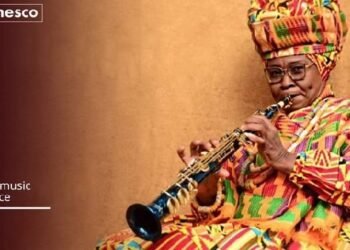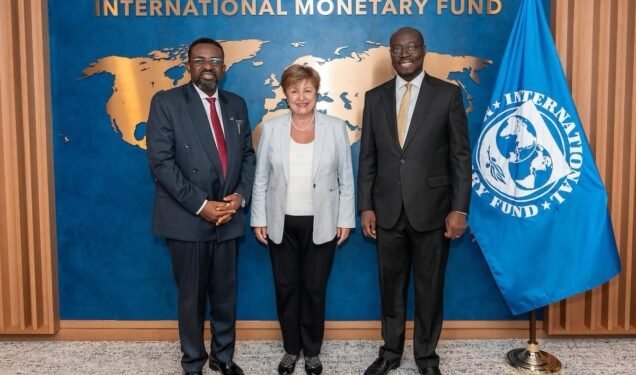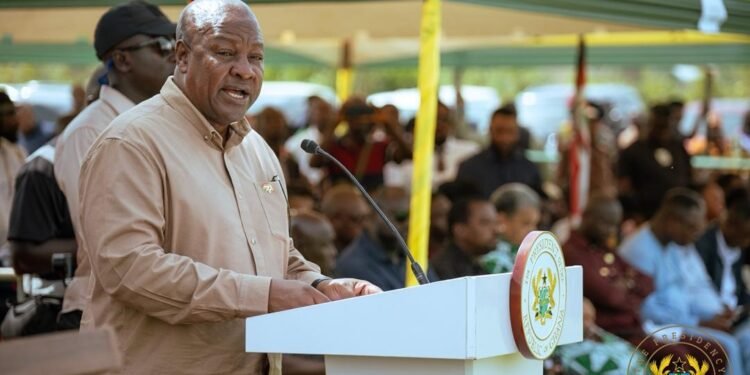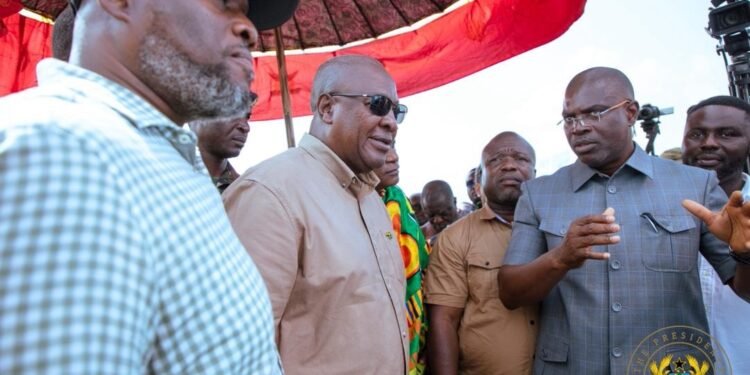As the music and entertainment industry continues to evolve, streaming platforms have emerged as the primary means through which audiences consume music.
In Ghana, where the creative arts have a rich history and vibrant contemporary scene, the rise of streaming services presents both opportunities and challenges for local artists.
Streaming platforms must collaborate with local stakeholders, including government agencies, music rights organizations, and the artists themselves, to ensure that Ghanaian artists receive fair compensation for their work.
In recent years, platforms like Spotify, Apple Music, and Boomplay have gained popularity in Ghana. These services offer artists a global audience and provide listeners access to a vast music library.
However, the financial benefits of streaming have not been evenly distributed, and many local artists struggle to earn a sustainable income from their work.
Nicholas Asefuah Mensah, the CEO and founder of SedNaq Musiq, called for stronger collaborations between streaming platforms and local stakeholders to ensure fair compensation for Ghanaian artists.
As a seasoned music distributor, promoter, and talent manager, Mensah is well-acquainted with the industry’s challenges, especially the gaps in the current music distribution landscape in Ghana.
“The music distribution landscape in Ghana has evolved with the rise of digital platforms. However, there are still significant challenges, such as a lack of infrastructure for global reach.”
Nicholas Asefuah Mensah
While some artists are beginning to make waves internationally, many continue to struggle with securing the right distribution networks and promotional strategies to break into foreign markets.
Streaming platforms typically pay artists a fraction of a cent per stream. For many Ghanaian musicians, this translates to minimal financial returns, especially when compared to traditional sales models.
Mensah emphasized the role of digital platforms like YouTube, Apple Music, and Boomplay in offering a global stage for Ghanaian artists.
Yet, he explained that many artists fail to fully exploit these platforms due to limited knowledge of digital marketing and platform-specific strategies, such as understanding algorithms and playlist curation.
Despite the availability of platforms like Aftown and Boomplay catering to local audiences, Mensah stressed that the reach is still insufficient compared to global players like Spotify and Apple Music. “We need to build stronger partnerships with international distributors, educate artists on monetization, and improve internet accessibility, particularly in rural areas,” he advised, calling for improvements in local digital infrastructure.
Collaboration Worthiness

Organizations like the Ghana Music Rights Organization (GHAMRO) help ensure that artists receive royalties for their work. Collaborating with these organizations facilitates the collection and distribution of royalties.
Streaming platforms should invest in educational initiatives to help artists understand the streaming landscape.
In addition to working with streaming platforms, Mensah highlighted the importance of collaborations with government bodies like the Ministry of Tourism, Arts, and Culture.
By organizing educational workshops on distribution channels, copyright, and intellectual property protection, the Ministry could play a crucial role in supporting artists. “Creating a central digital music hub and enforcing copyright laws will go a long way,” Mensah suggested.
He also touched on strategies for maximizing artist catalogs for revenue. Mensah pointed to sync deals in film, advertising, and gaming as untapped revenue streams for Ghanaian musicians.
Mensah emphasized the importance of engaging fans through curated playlists, remixes, and exclusive releases. “Crowdfunding and exclusive content platforms like Patreon can give artists more control over their revenue and deepen fan relationships,” he said.
The Boomplay platform has made significant strides in promoting local Ghanaian artists by curating playlists and collaborating with local music festivals. Their focus on African music has helped elevate Ghanaian artists on a continental level.
Spotify’s EQUAL Africa Initiative aims to promote women in music across Africa. By collaborating with local artists and stakeholders, Spotify has been able to highlight female talent in Ghana and provide them with a platform to reach wider audiences.
By building partnerships with music rights organizations, government agencies, and industry associations, platforms create a more equitable ecosystem for artists.
Additionally, investing in education and promoting local talent will not only benefit artists but also enrich the cultural landscape of Ghana.
As the music industry continues to evolve, all players must work together to create a sustainable and fair environment for Ghanaian artists to thrive.
READ ALSO: Success Of Ukraine’s Victory Plan Dependent On Diplomatic Engagements























